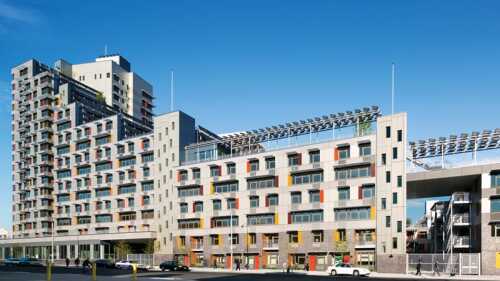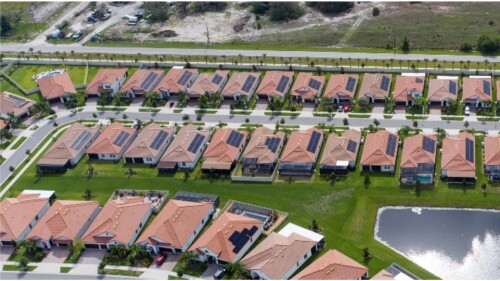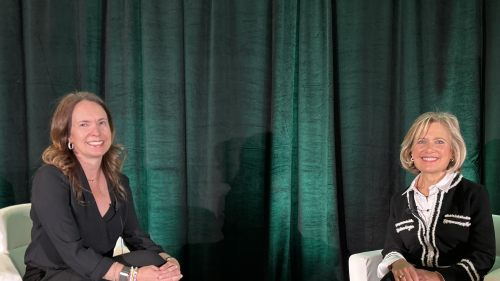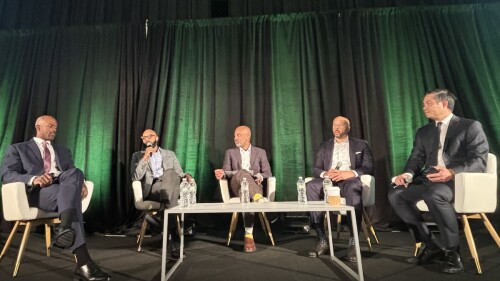Brian Swett, a longtime member of ULI Boston and Arup’s Americas East Leader, has been announced as the chair of the ULI Randall Lewis Center for Sustainability. Working with ULI staff, Swett will serve a two-year term with the Lewis Center. A former chief resilience officer for the city of Boston, Swett recently spoke to Urban Land about the opportunities he sees in the coming months.
UL: One of ULI’s top mission priorities is driving the built environment toward net zero carbon emissions. Why is this an urgent priority for ULI and the world?
Swett: Getting to net zero carbon is urgent for the world in order to avoid the most catastrophic impacts of climate change, and we cannot realize this goal without wholesale and equitable net decarbonization at scale. ULI as a global organization has been at the forefront of leveraging its membership’s aptitude and interest in creating a more resilient, just, and healthier planet, so it is ideally suited to help lead the charge for the real estate industry in achieving carbon neutrality.
I’m proud of ULI’s progress over the last decade in centering sustainability as its mission and its more recent commitment to driving the built environment towards net zero carbon by midcentury. These are important ambitions that ULI is leading the charge for on behalf of the entire real estate community. It is both critical for humanity and critical for our industry.
UL: When it comes to the Center’s work program for sustainability, resilience, and health, what are you most excited about in the coming year? What are the most important impacts ULI can have in the short and long term?
Swett: I’m excited by Randall Lewis’s recent historic gift of $10 million to ULI to fund the organization’s efforts to make the built environment more sustainable. This major donation enables the Center to make a step change in its impact and outreach, providing us with the resources to deliver activities in bigger and bolder ways. Likewise, I’m greatly appreciative of ULI Global CEO Ron Pressman’s leadership and vision, challenging us all to think more boldly about the influence our organization can have on our entire industry and the world at large.
This is a moment for the Center to expand its reach and I’m thrilled to be in an influential role to help shape and support our partnerships and programs. This decade is pivotal in our progress towards net zero because the decisions we make now are foundational for our industry to achieve the step change in decarbonization progress that is required to bend the curve on climate change. But we also need to do this in a way that creates a more equitable, just, healthy, and resilient built environment for all.
So, in the short term, I’m excited about ULI both supporting those in our industry who are at the vanguard in this movement while simultaneously encouraging and enabling those newer to this cause to join the journey. In the long term, I look forward to ULI coalescing our industry to be an invaluable partner in addressing climate change, the most existential threat facing humanity around the globe.
UL: Looking to the future, what role can ULI’s programming play in driving more sustainable outcomes and partnerships?
Swett: I’m excited in two distinct capacities: continuing to support our members through critical programming like Greenprint and the Net Zero Mission Priority, where we can support what is best in class for real estate development, while furthering the education and empowerment of those who are at earlier stages of climate action. ULI’s programs continue to show and share not only these best practices but also provide support for those individuals and organizations who are illustrating to the rest of the industry what is possible in this massive transformational period for real estate and the broader built environment. Our programming is a terrific way to broaden the Center’s remit while serving the organization’s full membership and the CRE community at large, making sure that this sector does its part in creating a decarbonized and more resilient world.
The resources now available to us, thanks to the generous donation by Randall Lewis, will enable us to think more boldly and broadly about how ULI can best accomplish its mission while growing our membership and impact. One critical area I’m particularly focused on is our partnerships and finding ways to expand and strengthen them. We need to work part and parcel with our communities, with local and state policymakers, and other like-minded organizations if we are going to achieve our climate and sustainability objectives.
UL: The world has pressing challenges when it comes to the need to reduce climate change and greenhouse emissions, enhance resilience and address disparities in health and equity outcomes, and there’s a tight window of time to change the built environment’s contributions to the climate warming trajectory. What worries you most when it comes to these intersecting issues, and what makes you most hopeful?
Swett: My professional experiences in both the private and public sector, and especially now at Arup, have made me hopeful that overall, we have the tools and technologies today to resolve these intersecting challenges. We don’t have a technical and engineering challenge in front of us that prevents us from delivering the world we want to live in. While there are a few things that we have left to work out, by and large, we’re not looking for some new unicorn solution. Our present moment is now about implementation and my hopefulness stems from the fact that we are not waiting on someone to invent something to get to our desired future. We have all the tools we need.
The challenge is to foster a better alignment of our economics, financial structures, and politics in the time necessary to drive the crucial transformation of our real estate and communities. We need to come together to establish a clear direction forward and ensure that all stakeholders are at the table to chart the pathways that get us to where we need to be by midcentury. We need enduring financial incentives and structures to align with better, more sustainable decisions and outcomes for this generation and future generations.
Time is of the essence, and we don’t have the luxury to stay in strategy and planning mode. We need real action, and I am hopeful that we’re getting there because I’m seeing more creative public-private partnerships as well as encouraging outputs from programs like the Center’s Net-Zero Imperative program, which is working with ULI District Councils around the country to drive down carbon emissions.
I’m optimistic about our partnerships and our ability to influence decision making across the real estate sector as the buildings that we deliver today will be in the middle of their lifecycle come 2050. I am also hopeful about our progress on delivering the green job revolution as a key action that is required to deliver decarbonization of our existing building stock over the coming decades. Our future leaders and changemakers will be addressing intersectional issues of decarbonization, health, equity, resilience, and racial justice using innovative technologies and creative solutions – many of which our members are establishing today.
Overall, this is a crucial moment for the ULI Randall Lewis Center for Sustainability in Real Estate and the whole ULI community. We’re the premier real estate organization that involves both owners, investors, and the larger architecture and engineering community—all organized toward its core mission of realizing a sustainable and net zero built environment. We can bring the real estate industry to the table and help solve the challenges of climate change with our global partners. We’re well-positioned to meet this moment and the momentum is building, propelling us forward toward our healthier and more resilient future.





